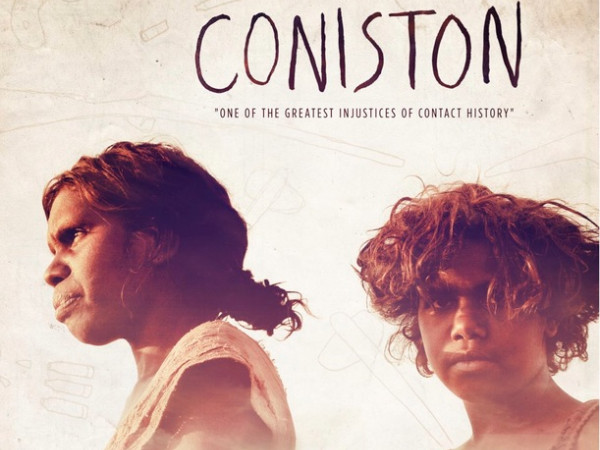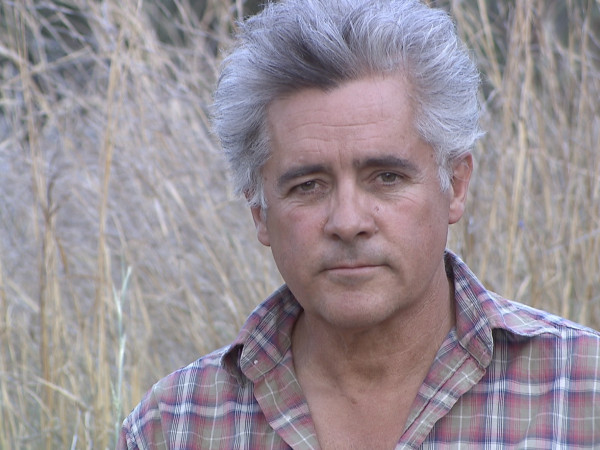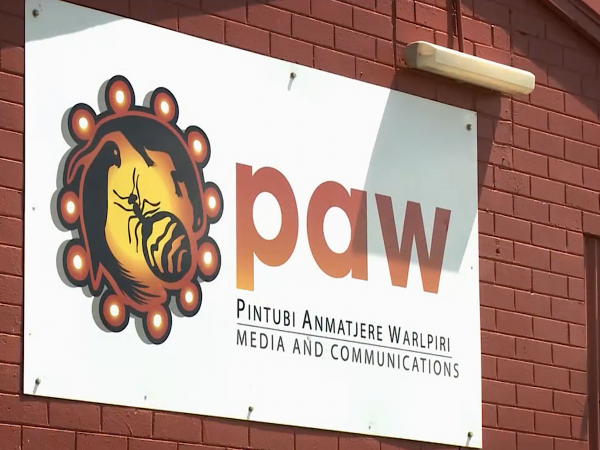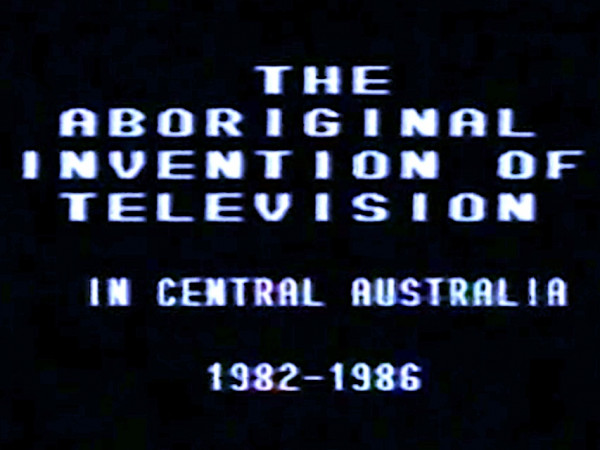Francis Jupurrurla Kelly
‘The way I see it, media is us, not other people…’
Today where I am sitting is a place called Luurnpakurlangu. This area is the Kingfisher Dreaming. Mt Doreen station is the English name for it. Lots of us used to stay here. This building behind me, I was born in this building, me and my sister Nellie. This used to be the hospital. This is the place everyone would meet. They used to experience work here too. How to ride horses and make saddles. A lot of white fellas worked here too, their wives stayed back in town. All these rocks were stacked by hand, I don’t know how the old fellas lifted them, they were strong in those days. Hungry for work.
Wally Braitling owned this station. People used to work for him. The Braitling family still own this station. Mrs Braitling would call us Pannikin - no name, Pannikin. That’s what she called us as kids. I roamed around the bush with the old people. Welfare was looking around for half-caste kids, to send them somewhere else. They were chasing us. Some of the Wilson and Cusack families were taken from here. Later they came back as adults. But not right here. They went to a new place – Yuendumu. That’s when everyone moved to Yuendumu. But I didn’t go, I stayed here at Mt Doreen. I stayed here with nomadic people.
In 1966 I moved to Yuendumu for school. I got work in Yuendumu, as a healthworker in 1975. Aboriginal people, young and old. Sickness comes through that is bad to us and our community. Some people don’t know about sickness. I worked there for a while, but it became too much for me, so I quit. I got no rest. I had to work night and day. Warlpiri Media started later…
In 1982 it started. My brother-in-law asked me to help him. He wanted to build up Warlpiri Media for the community. The name Warlpiri Media belongs to us. It’s ours, we have ownership of Warlpiri Media. So I said, “Yes, I’ll work with you!” Early on when we were working we would teach the kids about radio, properly. We got a receiver installed for our radio. Mostly we started out with people calling in with requests, non-stop requests, from the Community.
An American man came to Yuendumu named Eric Michaels. He used to teach us media, and we’d go to different cities, like Brisbane in Queensland and Canberra. We went to the Powerhouse Museum in Sydney, where we looked at the Aboriginal artefacts. He was a good worker teaching us all of that. The way I see it, media is us, not other people - how we deal with it, through the land and through our people.
‘There was concern of losing our culture and languages. That’s why we started it. We should have our own media in communities. Kids learn about European life, not their own Aboriginal life. When they come back to their communities they have nothing. Only loaded with European life and way of teaching. We have to teach more when they come back from school.’
The first film we made was, Fight Fire With Fire, which talked about media and how we were going to do it, our (Yapa) way. We had Warlpiri News, with stories about what was going on, like sports weekend and other things. We started Warlpiri Media for the Community, to bring all the old stories back, to teach young people two way education and to see people on film.
There was trip to visit the Pintubi mob at Lake Mackay. I made my first film with a National camera, black and white one. I used to carry it around, my shoulderwas really sore carrying that little box, holding the camera at the same time. Some people from Lapi Lapi saw us coming and lit a fire. As we got closer the families started to cry. Happy cries to see their families coming back home. That was my first film I made.
Early on I got ideas about acting when I appeared in a video for Land Council. They asked us to make little clips for them about dust…
We used to invite young people to come and do some acting, or to make their own shows. We called it kids’ Sesame Street - similar, but in our way. ‘Manyu-wana is great, not only for the young people, but also for old people who need to learn language. Some of those kids write in language, but I can't write in language, because I was never taught that way.’
We didn't know about cars, until that old man Derby showed us. We were on our way to a conference, a teleconference at Kintore. We were in an old model Toyota – an FJ 75 or maybe 45 model. Halfway there our clutch burnt out. We were sitting down waiting, when Old Man Derby had an idea. He said to cut some wood to jam into the clutch. That old man told me not to put the clutch in. "Just start it in gear and drive!" It started and it was shaking and shaking. Some of our blankets might have fallen out. We had to change the gears like an automatic. It got us to Kintore for the conference and back to Yuendumu. We got the clutch fixed back in Yuendumu.
Bush Mechanics teaches people how to survive in the bush without a garage. Most of the crew in Bush Mechanics were Jupurrurlas (skin brothers). Good fun we had. Once you become a filmmaker you have got to have friendly people and good friends to work together. After I made Bush Mechanics, we won anaward for it at the AFI awards held in Sydney. There was a lot of competition for the best film. The judges picked my film Bush Mechanics. This was the best film for people to learn how to survive in the bush.
For 10 years I studied the Coniston Massacre.
When I started researching the Coniston massacre, I spoke with many people to get stories and information from all the survivors. After going around and collecting enough information, I started the film. It was sad in those days when we were asking people about Coniston. Some didn't want to talk, some would get too shame to talk. I said now is the time we have to bring out the truth, for our people to know what happened at Coniston. [Clips from the film]
When we showed the film to the families, they were sad days, but they were happy to remember them again. It was painful for them. All over Australia they used to shoot Aboriginal people. But none of these stories came out. We have to bring it out, dig it out and tell stories for our young kids to learn more. [Clips from Coniston Story 1986]
Sure, I was making films, but sometimes I used to cry inside. Why am I doing this? What's it for? I am doing this for the benefit of my people, to learn, not from me. We've got to learn from our Elders, learn from our land. That Coniston Story is really important because, now all of the station owners have come in and are claiming it now. It's doesn't belong to them, because people were there surviving in that Country. Some people have started wondering now, where did our family come from? They're asking around quietly. "Your County is here". Like the Yurrguru people, people who were living in Willowra that came back to get their land back. Coniston is a reminder that we lost our people. That's all about land rights taken away. That's where the Coniston Massacre started and they got that land back.
Early on I was thinking about land rights. I was thinking to myself, one day I want to be Chairperson to share things I learned through the films I've made.
That's why I thought about being the Chairperson of the Central Land Council, so we can have good communication between the Land council and Aboriginal people, where we walk along together, side by side. I used to go around talking to people about all the issues to do with land rights and skin groups. We ask people who owns that particular Country, for the rightful land owners. We don't want to divide them, but put them into one picture. We've got strong people (white fellas) supporting us. But we need more input, they should let us do our things - not hold us back.
Today Warlpiri Media is running strong. It's now called PAW Media - Pintubi, Anmatjere, Warlpiri all in one. Working for media. The young people working today are the camera people and radio. Today's radio is getting bigger and bigger. People used to get frightened from the camera, but they are used to it now. Today, this world is full of problems, but we have to stay strong. For our young people, I'm talking about. After making that film Coniston people wanted to learn more, not only about the people that got shot, but about our Law that is still there. Our Law stays strong, with our culture, with our language. Now there's more projects coming up. I want to go back to filming, to make films for my people. Film making is really important, but it's a really hard job. You have to choose which way to go and how to find it out - the truth.




